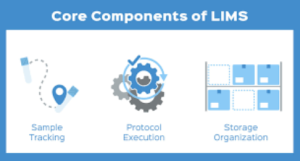
Advantages of Implementing a Quality Management System in Your Clinical
As clinical exploration lims turns out to be seriously demanding, a requirement for estimating and controlling quality becomes basic. This is where a quality administration framework (QMS) comes in.
A QMS (Quality Management System) is a control framework utilized for arranging and keeping up with a deliberate methodology for working on quality. It as a rule involves processes, rules as well as needs that might have arisen to accomplish the great result. This wipes out blunders and errors, accordingly reducing the costly expenses of remedy. To put it plainly, a QMS guarantees quality, decreases functional blunders, and makes the clinical examination process more reasonable.
Significance of a QMS in Clinical Research Facilities
In clinical examination, there is a legitimate commitment to the SQC assortment of discernible information and the creation of reproducible outcomes. Also, there is an obligation toward research members. Ensuring the nobility and protection of study members positions high in the standards held by scientists and their staff.
What should be included in a QMS?
Clinical examination locales ought to execute a QMS to meet the targets referenced previously. The staff working at the clinical site should be sufficiently prepared on the significance of the QMS and how to fittingly execute it. The accompanying exercises ought to be remembered for the clinical QMS:
QMS for Decision Making in Clinical Research
A QMS assumes a critical part in helping deliberate, exact, and normalized direction. It is essential to dispose of emotional as well as unpredictable independent direction and base choices on genuine information, unmistakable conviction, and savvy instinct. Quality administration in research is regularly determined by the business (CROs, supporters, and controllers) in a bid to efficiently normalize quality across the clinical improvement exercises’ lifecycle.
All partners including doctors, research members, locales, and site administrators should be aware of information-driven brings about the request to settle on customized choices given their necessities and objectives.
Different Benefits of QMS
QMS execution ought to be a standard practice at clinical examination labs as its advantages far offset its clear expense. It has a large group of different advantages to the destinations, patients, as well as backers. A portion of these advantages are:
Quality improvement guarantees information uprightness and insignificant deferrals so that medications arrive at the market all the more rapidly. The locales have a diminished weight achieved by smoothing out the cycles of clinical preliminaries as well as zeroing in on dispensing with the “relevant issues”.
Picking a QMS for Your Clinical Research Facility
Searching for a proper QMS for your clinical examination office can be a seriously overwhelming errand. Here are a few pointers you ought to pay special attention to.
QMS versus LIMS
While a LIMS and a QMS have various likenesses, notwithstanding, they are not something very similar. A clinical exploration office necessities to decide whether they will require either or both. A lab programming for clinical examination labs, otherwise called a Clinical Laboratory Information Management System (LIMS), is a natural arrangement that empowers labs to go paperless by carefully overseeing information and computerizing processes. A QMS, then again, assists labs with satisfying their set guidelines for quality and thus works on general efficiency.
An unlimited lab programming for clinical examination labs can be improved to complete quality capacities. All in all, a LIMS can bend over as the QMS for a clinical exploration office. This won’t just save money on capital expenses yet will likewise support effectiveness and efficiency by smoothing out all lab tasks into one programming.
End
At present, the industry direction for the nature of clinical examination is divided across a few archives from various sources. However quality frameworks are available in different ventures like drug fabricating as well as flight, an industry-wide calculated structure is missing for clinical quality administration which targets tending to quality as well as checking the improvement of execution in complex “clinical advancement explicit” conditions.

Via organizations between Health Authorities as well as other industry partners, a QMS has progressed significantly in further developing quality across the clinical exploration industry, and we might dare to dream for much more upgrades from here on out.



